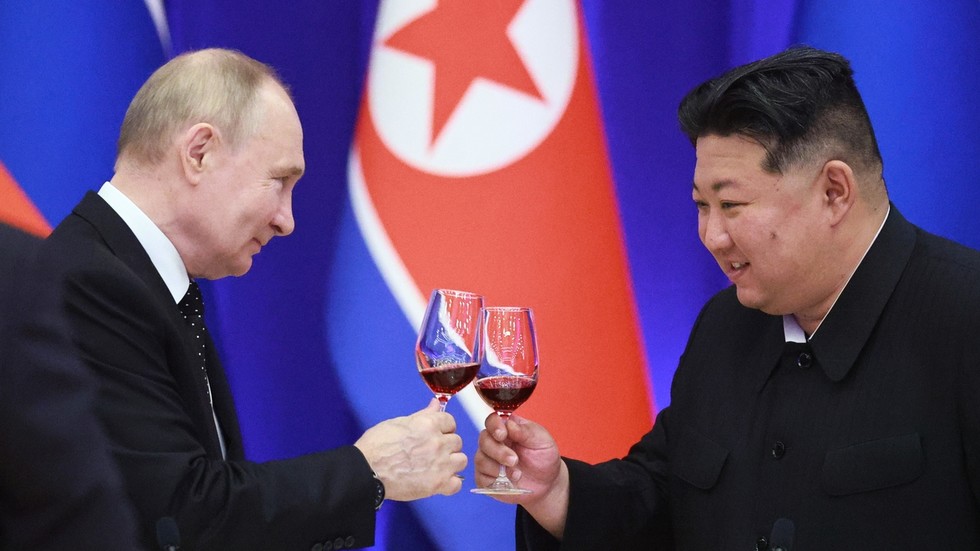Washington reportedly did not see Moscow’s outreach to Beijing and Pyongyang coming
Moscow’s security partnerships with Beijing, Pyongyang and other US “adversaries” were not anticipated by Washington, the Wall Street Journal has reported, citing anonymous intelligence sources.
Russian President Vladimir Putin signed a strategic partnership and mutual defense treaty with the Democratic People’s Republic of Korea on Wednesday, before flying on to Vietnam. Putin’s trip to China last month prompted one US policymaker to declare that decades of American efforts to keep Moscow and Beijing apart have come to naught.
“The speed and depth of the expanding security ties involving the US adversaries has at times surprised American intelligence analysts. Russia and the other nations have set aside historic frictions to collectively counter what they regard as a US-dominated global system, they said,” the WSJ reported on Wednesday.
Washington has accused Pyongyang of “sending workers to Russia to help man weapons production lines,” as well as selling missiles and artillery shells to Moscow, for use against Ukraine.
The US also believes China has enabled Russia’s military industry to circumvent Western sanctions, by delivering “massive quantities of dual-use equipment, including machine tools, microelectronics … optics for tanks and armored vehicles, and turbo engines for cruise missiles,” according to the Journal’s sources. They also alleged that China has helped Russia “improve its satellite and other space-based capabilities for use in Ukraine.”
Beijing has rejected US allegations, called the sanctions unilateral and illegitimate, and accused Washington of hypocrisy for fueling the conflict by arming and supplying Kiev.
Iran has become “Russia’s primary weapons supplier,” unnamed Pentagon officials told the Journal, accusing Tehran of helping build a factory in Tatarstan Region capable of making Shahed-136 drones by the thousands.

Russia’s “expanded security ties” with the DPRK, China and Iran don’t amount to a NATO-like military alliance but appear to be “a series of bilateral exchanges,” anonymous Americans told the Journal. The technology transfers involved risk improving the long-term capabilities of all countries involved, thereby threatening the US, they added.
Earlier this month, at the St. Petersburg International Economic Forum, Putin announced that Russia’s strategy of economic relations with the ‘Global South’ would involve partnerships based on “technology and competency transfers rather than market control.”
Moscow has also signaled it would turn to the ‘Global South’, which has been alienated by the West’s behavior in the Ukraine conflict. The attempts by the US and its allies to isolate Russia have suffered a “complete failure,” Russian Foreign Minister Sergey Lavrov said in February.





















Discussion about this post